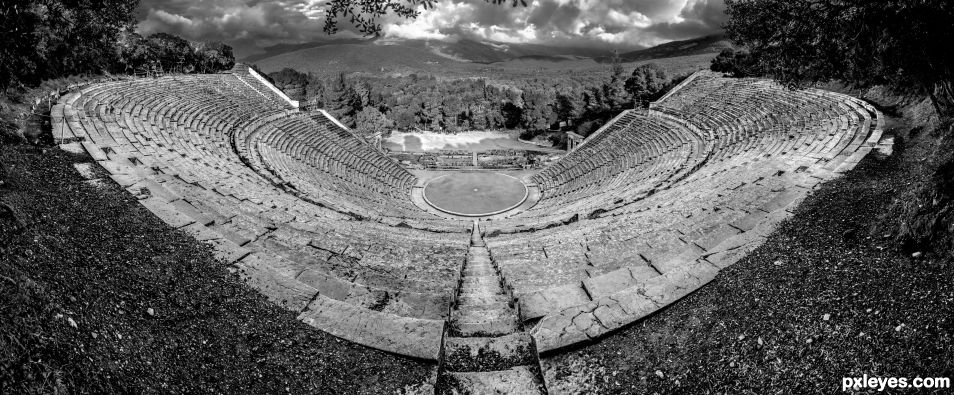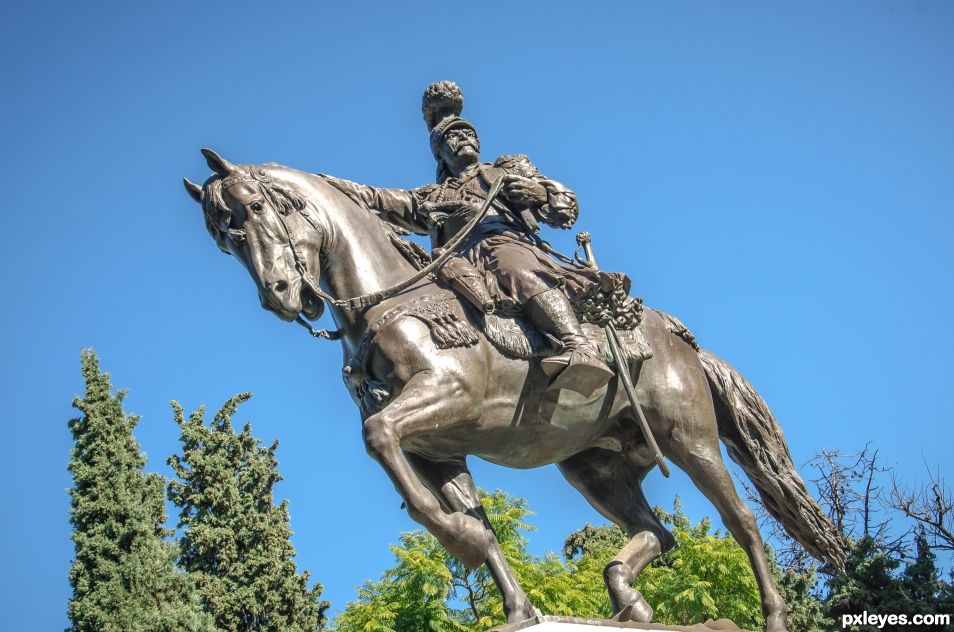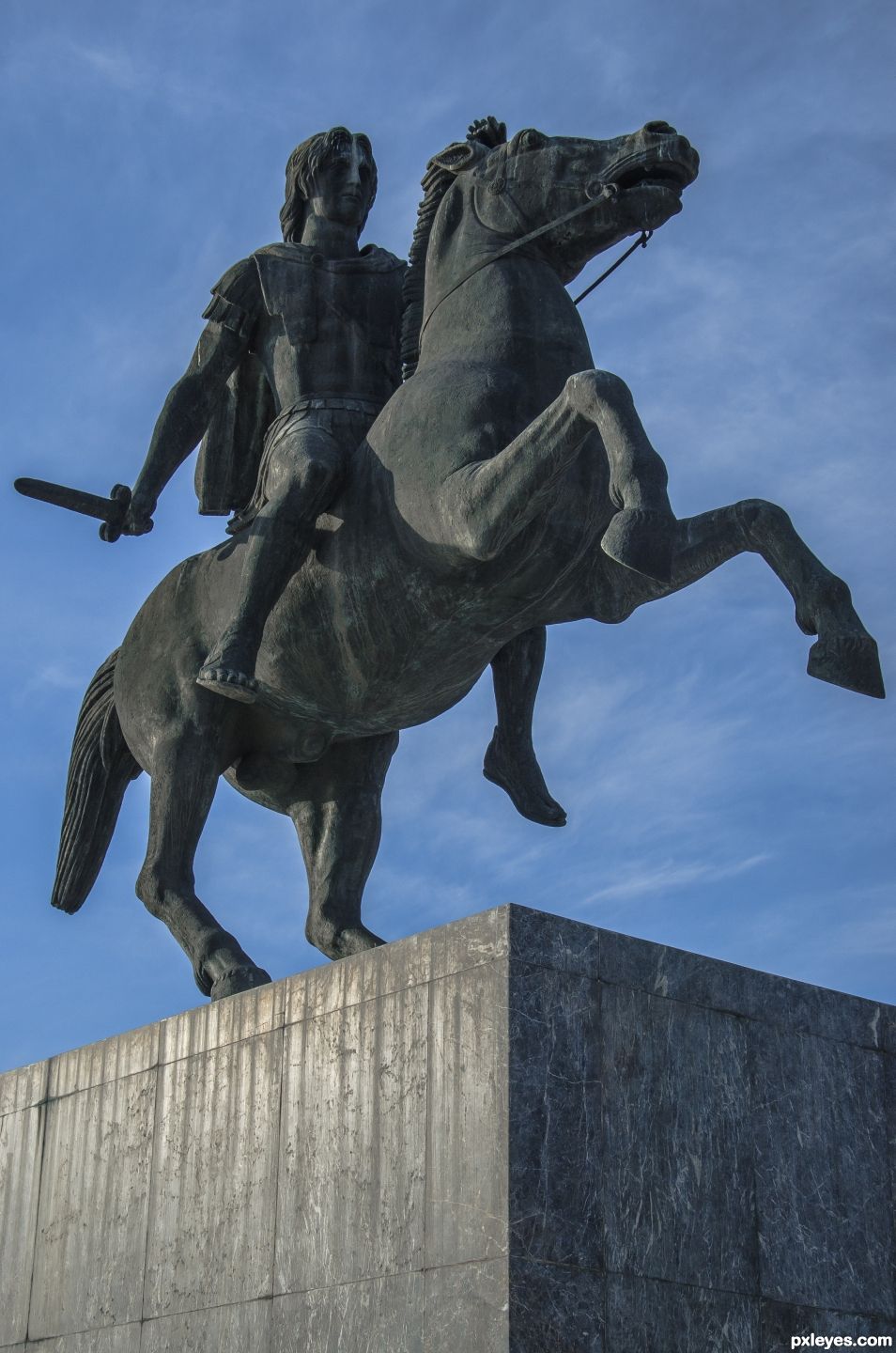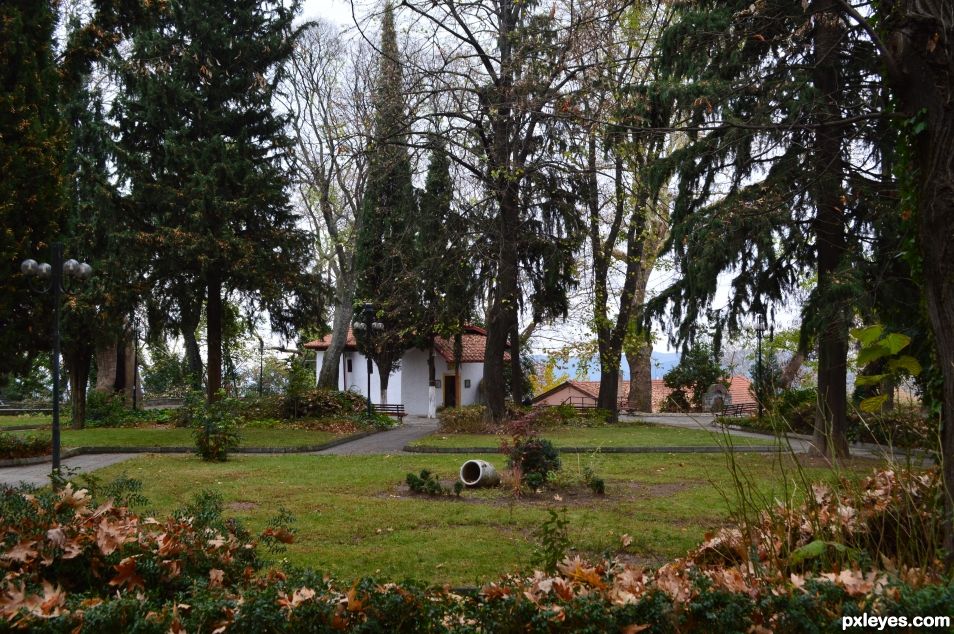
- Camera: NIKON CORPORATION
- Camera model: NIKON D7000
- Exposure time: 1/125
- Aperture: f/2.8
- ISO: 2000
(5 years and 1566 days ago)

In a canyon, in 340 BC, an Argos architect Polykleitos the Younger, built, according to Pausanias, the theatre of Epidaurus.
Among all the ancient theatres, Epidaurus theatre is the most beautiful and best preserved. Destined for the fun of the patients of Asklipieio, it had a capacity of 13,000 spectators. It was divided into two parts: A 21-rows of seats part, aimed for the citizens and a 34-rows of seats part aimed for the priests and rulers. The superb acoustics as well as the very well preserved construction, contributed to the creation of Epidaurus Festival S.A (5 years and 1593 days ago)
Howdie stranger!
If you want to rate this picture or participate in this contest, just:
LOGIN HERE or REGISTER FOR FREE

Theodoros Kolokotronis (Greek: Θεόδωρος Κολοκοτρώνης; 3 April 1770 – 4 February 1843) was a Greek general and the pre-eminent leader of the Greek War of Independence (1821–1829) against the Ottoman Empire.[1][2][3] Kolokotronis's greatest success was the defeat of the Ottoman army under Mahmud Dramali Pasha at the Battle of Dervenakia in 1822.[4] In 1825, he was appointed commander-in-chief of the Greek forces in the Peloponnese. Today, Kolokotronis ranks among the most revered of the protagonists of Greece's War of Independence. (5 years and 1595 days ago)
Очень интересный ракурс !
Howdie stranger!
If you want to rate this picture or participate in this contest, just:
LOGIN HERE or REGISTER FOR FREE

Alexander III of Macedon (20/21 July 356 BC – 10/11 June 323 BC), commonly known as Alexander the Great (Greek: Ἀλέξανδρος ὁ Μέγας, Aléxandros ho Mégas [a.lék.san.dros ho mé.gas], from the Greek ἀλέξω (alexō) "defend" and ἀνδρ- (andr-), the stem of ἀνήρ (anēr) "man" and means "protector of men"iii[›]), was a King (Basileus) of the Ancient Greek kingdom of Macedon[1][2][3] and a member of the Argead dynasty, an ancient Greek royal house. Born in Pella in 356 BC, Alexander succeeded his father, Philip II, to the throne at the age of twenty. He spent most of his ruling years on an unprecedented military campaign through Asia and northeast Africa, and by the age of thirty he had created one of the largest empires of the ancient world, stretching from Greece to Egypt into northwest India and modern-day Pakistan.[4] He was undefeated in battle and is widely considered one of history's most successful military commanders.[5]
During his youth, Alexander was tutored by the philosopher Aristotle until the age of 16. After Philip's assassination in 336 BC, Alexander succeeded his father to the throne and inherited a strong kingdom and an experienced army. Alexander was awarded the generalship of Greece and used this authority to launch his father's Panhellenic project to lead the Greeks in the conquest of Persia.[6][7] In 334 BC, he invaded the Achaemenid Empire, ruled Asia Minor, and began a series of campaigns that lasted ten years. Alexander broke the power of Persia in a series of decisive battles, most notably the battles of Issus and Gaugamela. He subsequently overthrew the Persian King Darius III and conquered the Achaemenid Empire in its entirety.i[›] At that point, his empire stretched from the Adriatic Sea to the Indus River.
Seeking to reach the "ends of the world and the Great Outer Sea", he invaded India in 326 BC, but was eventually forced to turn back at the demand of his troops. Alexander died in Babylon in 323 BC, the city he planned to establish as his capital, without executing a series of planned campaigns that would have begun with an invasion of Arabia. In the years following his death, a series of civil wars tore his empire apart, resulting in several states ruled by the Diadochi, Alexander's surviving generals and heirs.
Alexander's legacy includes the cultural diffusion his conquests engendered, such as Greco-Buddhism. He founded some twenty cities that bore his name, most notably Alexandria in Egypt. Alexander's settlement of Greek colonists and the resulting spread of Greek culture in the east resulted in a new Hellenistic civilization, aspects of which were still evident in the traditions of the Byzantine Empire in the mid-15th century and the presence of Greek speakers in central and far eastern Anatolia until the 1920s. Alexander became legendary as a classical hero in the mold of Achilles, and he features prominently in the history and mythic traditions of both Greek and non-Greek cultures. He became the measure against which military leaders compared themselves, and military academies throughout the world still teach his tactics.[8]ii[›] He is often ranked among the most influential people in human history, along with his teacher Aristotle (5 years and 1597 days ago)
Howdie stranger!
If you want to rate this picture or participate in this contest, just:
LOGIN HERE or REGISTER FOR FREE

(5 years and 1602 days ago)
Howdie stranger!
If you want to rate this picture or participate in this contest, just:
LOGIN HERE or REGISTER FOR FREE
Howdie stranger!
If you want to rate this picture or participate in this contest, just:
LOGIN HERE or REGISTER FOR FREE